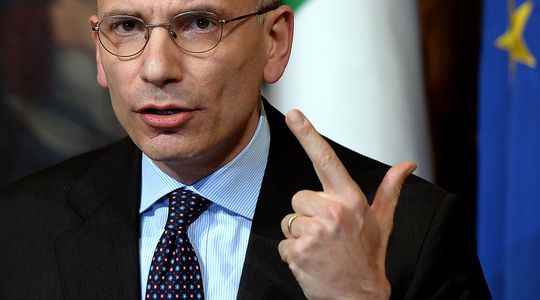“The presidential election will be an opportunity for the French to decide between two visions of Europe.” This is the promise made by Marine le Pen on January 18, during a press conference in which she presented her vision for Europe, which is “the antithesis of that defended by Emmanuel Macron”.
In her speech, Marine Le Pen harshly criticizes the EU built by Europeanists, “forgetful of peoples and dominating nations”, opposing to it the conception of a “European alliance of nations”. However, his arguments are fallacious. A closer analysis demonstrates this clearly.
First of all, Marine Le Pen trivializes and distorts the positions of pro-Europeans, so as to make them more easily contestable and divert the attention of her interlocutors. She accuses the EU of wanting to erase any national identity, because cultural differences would be an obstacle to economic exchanges. In this narrative, the pro-Europeans would conceive the Union first of all as a market, in whose interests everything can be sacrificed. This is a completely misleading description of the debate.
It is true that over the last decades the EU has made much more progress in the field of economic integration than in the enhancement of its cultural heritage, but the fault lies with the Eurosceptic forces. The pro-Europeans would have liked to give concrete expression to Article 167 of the Treaty on the Functioning of the European Union, according to which “the Union contributes to the flowering of the cultures of the Member States while respecting their national and regional diversity, while highlighting the common cultural heritage”. If this has not been possible, it is because the Eurosceptics have forced the EU to limit its field of intervention to the economy, while at the same time criticizing this approach. The contradiction is stark.
Position change
Secondly, Marine Le Pen does not hesitate to base her criticisms of Europe on false information. She blames the EU’s ideological approach to the pandemic and argues that states would have achieved much more effective results if they had been left free to act outside the European framework.
But it is wrong to say that the decision not to immediately suspend Schengen prevented the circulation of Covid-19 from being blocked, because a virus does not stop at borders; moreover, today we know that the Covid-19 had arrived in Europe long before the first detection in Italy. And it is not true to say that the European vaccine strategy has slowed down and made operations more expensive. It is paradoxical to see Marine le Pen accusing the EU of being ideological and at the same time using ideological arguments to defend her theses.
Indeed, despite her criticisms, she cannot hide the fact that Europe has worked well in recent years. The demonstration of this is that it is obliged to admit to having changed its position with regard to Europe: today, the National Rally no longer demands a withdrawal from the EU, because this position has become untenable. , but the “in-depth reorientation of the European Union”.
Proposals as weak as its critics
Marine Le Pen seeks to justify this U-turn by saying that “we have always shown pragmatism regarding European issues”, and that today there would be the possibility of changing the EU without leaving it. But she forgets to recall that the new policies put in place by the EU (Next Generation EU, first of all) were possible thanks to the serious work of pro-Europeans, and not with the sterile criticisms of Eurosceptics.
Finally, the weak point of Marine Le Pen’s press conference is that we do not understand why the vision of Europe that she proposes would be more capable of defending the interests of the French. His proposals are as weak as his critics: his desire to bring about protectionist and anti-immigration policies recalls the speeches of Donald Trump, the results of which everyone has seen.
But, on one point, Marine Le Pen is right: when she affirms that, in this electoral campaign, two visions of Europe confront each other. The EU is one of the political divides of our time, even after the pandemic. This is why it is even more important today to make a choice in favor of Europe and its values of peace.
